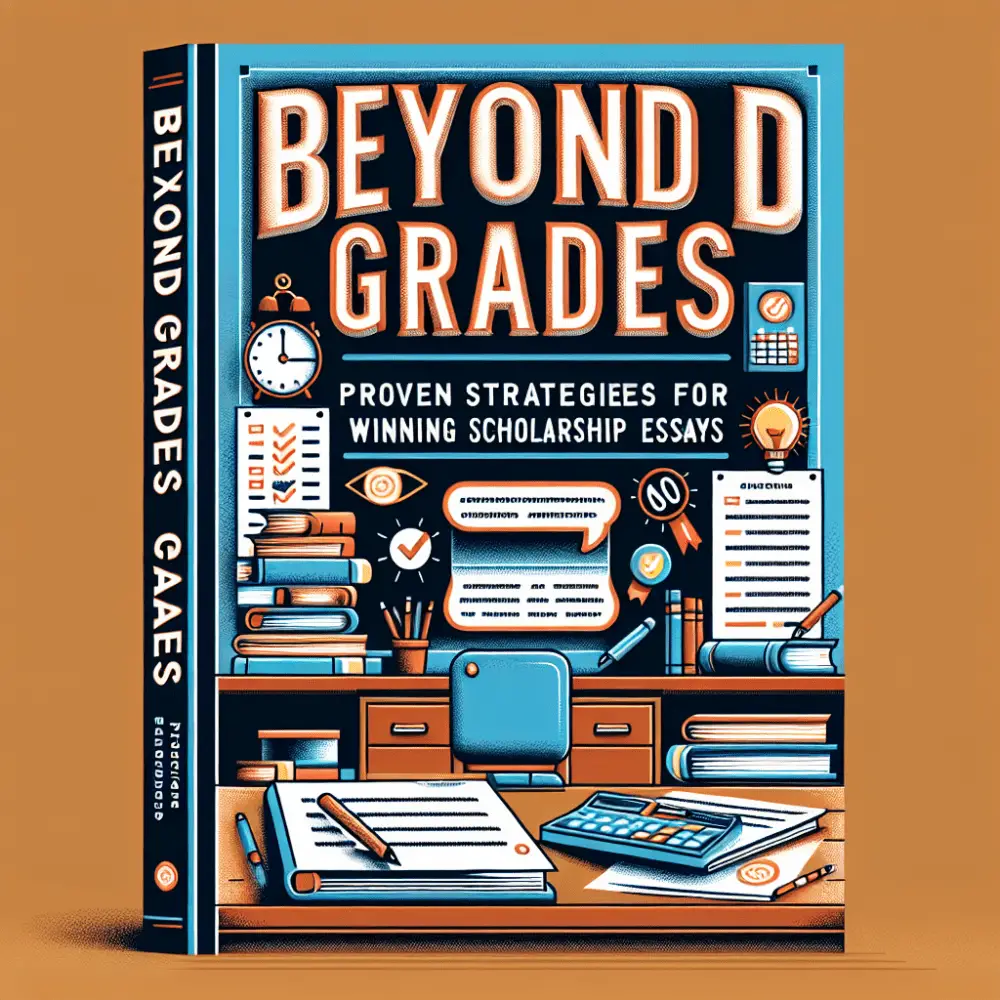
Beyond Grades: Proven Strategies for Winning Scholarship Essays
Securing a scholarship can be a game-changer for students seeking higher education. However, the competition is fierce, and one of the most crucial components of a scholarship application is the essay. Beyond grades and test scores, this compelling piece of writing showcases a student’s unique voice and aspirations. To stand out from the crowd, aspiring scholars must employ proven strategies to craft winning scholarship essays that captivate the attention of selection committees. This article delves into expert tips and insights that will help students navigate the essay writing process and increase their chances of obtaining valuable scholarships.
1. Unveiling Your Authentic Story
One mistake many applicants make is trying to portray themselves as someone they are not. Scholarship essays require authenticity, as these committees seek candidates who can stand out through genuine storytelling. Students should take time to reflect on their personal experiences, challenges, and triumphs that have shaped them into who they are today.
By unveiling their unique story, students can create an emotional connection with the readers. Sharing personal anecdotes or transformative experiences not only demonstrates resilience but also showcases an applicant’s character traits such as determination, empathy, and perseverance.
2. Understanding the Prompt
Before diving into writing, it is crucial to thoroughly understand the prompt provided by scholarship programs. Many applicants fail to address specific aspects of the prompt or go off track entirely.
To avoid this pitfall, students should meticulously analyze each prompt they encounter. They must identify keywords or phrases that outline what selection committees are looking for in an ideal candidate.
3. Structuring with a Compelling Introduction
The introduction sets the tone for the entire essay, so crafting an engaging opening is paramount. Rather than starting with a generic statement, students should strive to begin with a captivating anecdote, quote, or thought-provoking question. This immediately grabs the reader’s attention and compels them to continue reading.
Additionally, the introduction should clearly state the purpose of the essay and provide an overview of what will be discussed in subsequent paragraphs. This creates a sense of structure and ensures that the essay flows seamlessly.
4. Showcasing Personal Growth
Scholarship essays are an opportunity for students to highlight their personal growth and demonstrate their ability to overcome obstacles. Admissions committees are interested in individuals who can exhibit resilience, adaptability, and a willingness to learn from challenges.
Students should focus on showcasing the positive outcomes that arose from difficult experiences. They can reflect on how these challenges have shaped their values, goals, or aspirations for the future.
5. Highlighting Impactful Extracurriculars
Scholarship committees often value well-rounded individuals who not only excel academically but also actively contribute to their communities through extracurricular activities. It is essential for students to showcase their involvement in clubs, organizations, or volunteer work that aligns with their passions and interests.
When discussing extracurriculars in the essay, applicants should emphasize the impact they have made on others or their community as a whole. Sharing specific examples of leadership roles or initiatives taken within these activities will illustrate an applicant’s leadership potential and dedication towards making a difference.
Frequently Asked Questions (FAQ)
- Q: How long should scholarship essays be?
- Q: Should I use a formal or informal tone in my essay?
- Q: What should I avoid in my scholarship essay?
A: While the length may vary depending on the specific scholarship program, it is generally recommended to adhere to word limits provided by the scholarship committee. Typically, essays range from 500 to 1,000 words. It is crucial to follow the instructions and avoid exceeding the specified word count.
A: The tone of your essay should generally be formal and respectful. Scholarship committees often seek professionalism in applicants’ writing style. However, it is essential to strike a balance between formality and authenticity, allowing your unique voice to shine through.
A: To increase your chances of success, avoid clichés, generic statements, or exaggerations. Plagiarism is strictly frowned upon and could lead to disqualification. Additionally, steer clear of controversial or sensitive topics that may offend readers or create an unfavorable impression.
















